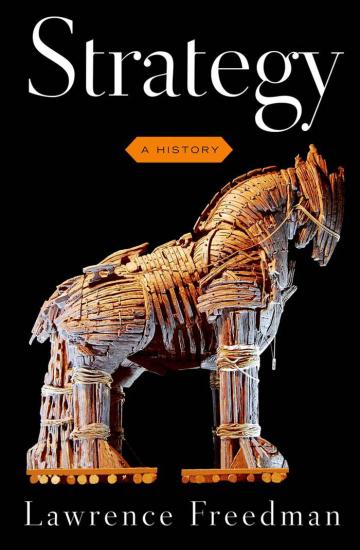
Rating: Not rated
Tags: Political Science, Security (National & International), General, Peace, International Relations, Technology & Engineering, Military Science, Intergovernmental Organizations, Lang:en
Publisher: Springer
Added: August 1, 2018
Modified: November 5, 2021
Summary
“The Evolution of Nuclear Strategy quickly
established itself as a classic when it first appeared in
1981. This edition makes it even better, incorporating as it
does new material about the Cold War and up-dating to include
subsequent developments. Filled with insights and penetrating
analysis, this volume is truly
indispensable.”—Robert Jervis, Author of How
Statesmen Think"Freedman and Michaels have written a thorough
and thought-provoking guide to nuclear strategy. The authors
analyze the causes of both wise and unwise strategic
decisions in the past and thereby shine a bright light on
dilemmas we face in our common nuclear future."—Scott
Sagan, Stanford University, USA “With its comprehensive
coverage, clear and direct language, and judicious summaries
of a vast literature, this new and wholly revised edition of
The Evolution of Nuclear Strategy will be essential reading
for any student of nuclear history, strategic studies, or
contemporary international relations.”—Matthew
Jones, London School of Economics and Political Science,
UK“Sir Lawrence Freedman’s The Evolution of
Nuclear Strategy has been the first port of call for three
generations of academics and policy-makers wanting to
familiarize themselves with the subject matter. The success
of this book could have led Professor Freedman to satisfy
himself with regular updates or afterwords. But the tireless
author is now gracing us with an entirely revised edition of
his masterpiece nearly forty years after its initial
publication, taking into account findings from archives and
declassified documents. At the same time, The Evolution of
Nuclear Strategy remains true to its original purpose and
spirit: an easy to read manual, light with footnotes,
focusing on policy rather than on theory, and thus the best
possible introduction to an arcane subject. In an era when
nuclear strategy issues seem to be becoming relevant again,
its historical scope and breadth will make its reading or
re-reading even more useful – if only because knowing
about the absurdity of the Cold war arms race is a
prerequisite if one does not want to repeat its
mistakes.”—Bruno Tertrais, Deputy Director,
Fondation pour la Recherche Stratégique,
France“This updated and improved edition of the classic
text on the evolution of nuclear strategy is a must read for
anyone attempting to understand the nuclear predicament and
where it is heading. Impressive in every
respect!”—T.V. Paul, James McGill Professor of
International Relations, McGill University, Canada, and the
author of The Traditon of Non-Use of Nuclear
Weapons“After the end of the Cold War, we hoped for a
world in which nuclear weapons would have ‘low
salience’, or might even disappear into virtual,
non-assembled arsenals. Alas, they are coming to the fore
again. With changes in political context and technology, it
is thus pressing that ‘the Bible’ on the
Evolution of Nuclear Strategy should be updated. Lawrence
Freedman’s great classic has been admirably updated
with the help of Jeff Michaels. The work, just as its
previous editions, thus remains the definitive and
authoritative point of reference on nuclear strategy in the
twenty-first century.”—Beatrice Heuser, Chair of
International Relations, University of Glasgow, ScotlandFirst
published in 1981, Lawrence Freedman's The Evolution of
Nuclear Strategy was immediately acclaimed as the standard
work on the history of attempts to cope militarily and
politically with the terrible destructive power of nuclear
weapons. It has now been completely rewritten, drawing on a
wide range of new research, and updated to take account of
the period following the end of the cold war, and covering
all nuclear powers.